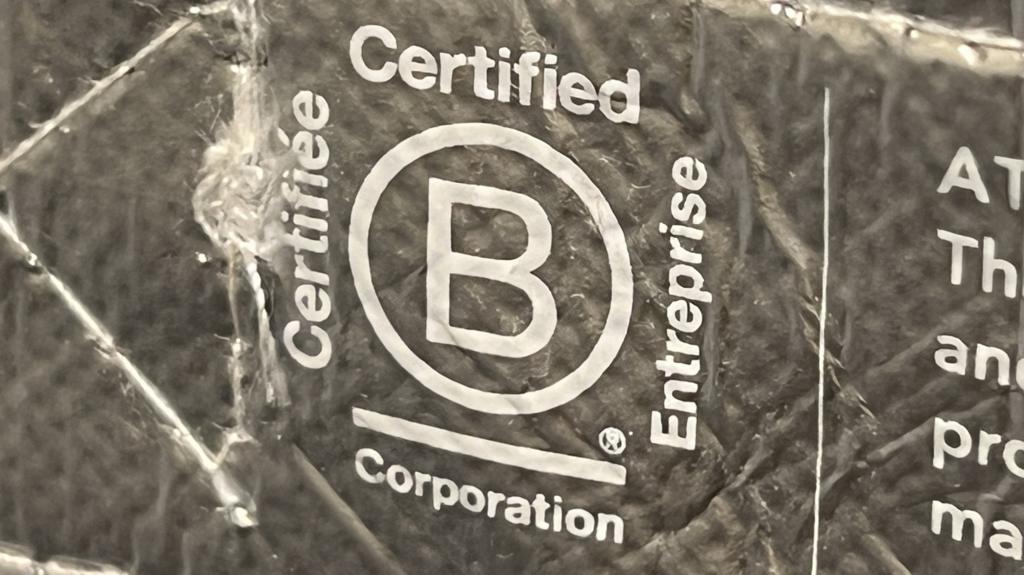Earlier this year, the natural soap manufacturer Dr. Bronner’s announced its decision to withdraw from B Corp, a global certification program recognizing companies for their adherence to rigorous social and environmental standards.
Dr. Bronner’s, a family-operated business based in California with 323 employees, had been a member of B Corp for a decade.
However, the company stated that the accreditation lacked stringency and criticized B Corp, the international organization overseeing the certification, for allegedly admitting some of the world’s largest corporations too readily. Dr. Bronner’s accused the scheme of “enabling greenwashing and purpose washing by multinationals.”
Dr. Bronner’s highlighted its ongoing opposition to the B Corp certification granted to the coffee capsule brand Nespresso in 2022. Nespresso is a subsidiary of the Swiss food conglomerate Nestlé.
In 2020, Nespresso faced allegations that some of its coffee suppliers in Guatemala were employing underage children. In response to the controversy, Nespresso stated that it “had a zero tolerance of child labour” and would take “immediate” action.
In a statement announcing its departure from B Corp, Dr. Bronner’s asserted that it was “unacceptable to us” to be associated “with large multinational CPG [consumer packaged goods] with a history of serious ecological and labour issues.”
The company further stated, “The integrity of the B Corp certification has become compromised, and remaining certified now contradicts our mission.”
In response, a Nespresso spokesperson informed the BBC that its B Corp certification is “an acknowledgement of our long-standing commitment to sustainability, particularly our efforts to support coffee farmers… and a result of rigorous B Impact Assessment covering all environmental and social aspects of our business and supply chain.”
The B Corp scheme, established in 2006, currently boasts over 9,600 members across 102 countries and 161 industries. The “B” in B Corp signifies “beneficial,” and accreditation can enhance a company’s appeal to environmentally and socially conscious consumers.
B Lab declined to disclose the precise number of multinational member firms but indicated that over 96% are small and medium-sized businesses.
While defending Nespresso’s membership, B Lab announced the introduction of new, “more rigorous” certification standards next year.
Presently, applicant firms can attain B Corp certification by achieving a minimum of 80 points out of a possible 200 across various environmental and social criteria, allowing for weaknesses in one area to be compensated for by strengths in others.
This point system will be discontinued from 2026 and replaced with minimum requirements across seven key areas: purpose and shareholder governance; fair work; justice, equity, diversity, and inclusion; human rights; climate action; environmental stewardship; and government affairs and collective action.
Furthermore, third-party verification of companies’ performance is being implemented, and firms will be required to demonstrate continuous improvement in their standards.
Chris Turner, chief executive of B Lab UK, stated, “This is really a sign to make the standards more rigorous and raise the bar for businesses. We are becoming more transparent and credible as a certification.”
However, he denied that the new standards were specifically targeted at multinational members. “The new standards are not designed to address a specific challenge about big business joining… We have increased expectation now of what being a force for good looks like. And within that we acknowledge that bigger businesses have a bigger potential for impact and need more rigorous checks.”
He added, “We will be working really hard to create a pathway for B Corps to certify on new standards, but what that means will differ for each business. Some businesses will find it easy, while for some businesses there will be significant work to do to meet new standards.”
Whether these changes will suffice to prevent smaller firms like Dr. Bronner’s from abandoning B Corp remains uncertain. UK pet food company Scrumbles also relinquished its certification this year.
Aneisha Soobroyen, co-founder of the London-based company, stated, “I saw that growing membership was the focus rather than pushing forward sustainability efforts.”
Instead of paying its annual recertification fee of £8,500, an amount determined by a company’s revenues, Scrumbles donated the money to Save The Children.
Nancy Landrum, professor of sustainable business transformation at Munich Business School, characterized B Corp as “a good starting point.”
“It is a great certification scheme for businesses that are just beginning their sustainability journey, and that want to decrease unsustainable activities, and increase sustainable activities.”
“But B Corp, and all of the most frequently used schemes, simply don’t go far enough.”
While B Corp accreditation can help a company boost its sales, Dr. Bronner’s chief executive David Bronner believes that leaving the scheme is unlikely to significantly impact the company.
“We think our brand strength is enough.”
Regarding the possibility of reapplying for B Corp in the future, Mr. Bronner stated that they “would re-join tomorrow” if more stringent regulations were imposed on the supply chains of multinational members.
In the meantime, the company has established its own rival scheme called Purpose Pledge. “It gets to the heart of what we think is a true missionary driven company,” says Mr. Bronner. “Paying living wages, and holder each other accountable, and having supply chain integrity.”
So far, he says 14 other companies have signed up.
It imposed the ban in 2023 over Japan’s release of treated waste water from the Fukushima nuclear plant.
Company executives say the sportwear giant will cut its reliance on producing goods in China to ease the impact of US trade policies.
In Lithuania and Australia, hungry fly larvae are used to process food waste into useful protein.
The firm’s founder became the world’s youngest self-made female billionaire when it launched on the US stock market.
The conflict between Iran and Israel adds further uncertainty to an already strained global outlook.

